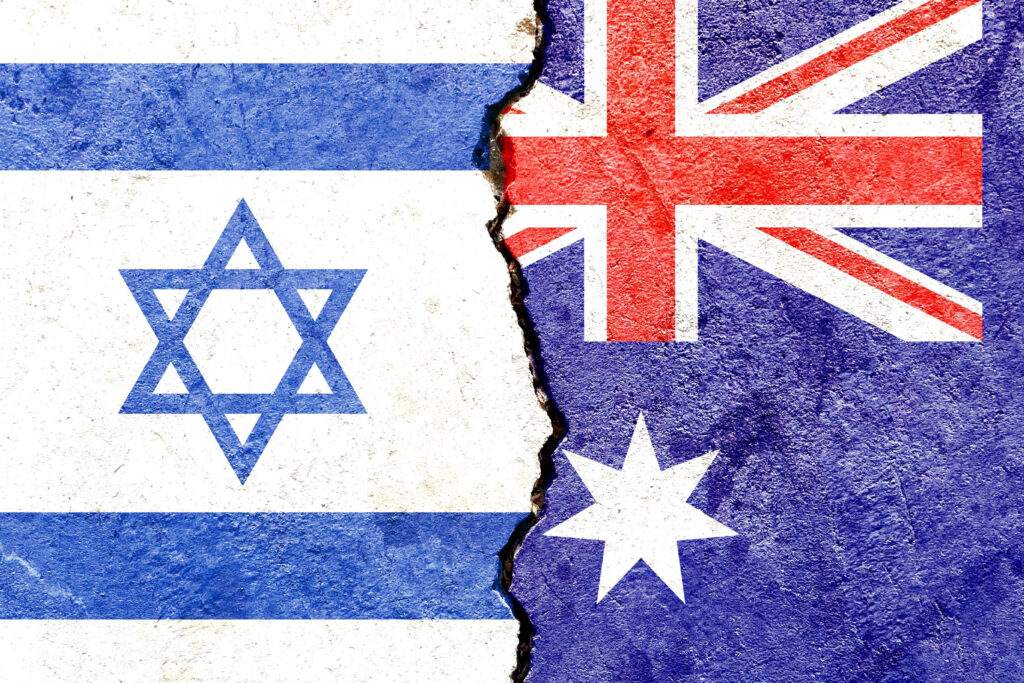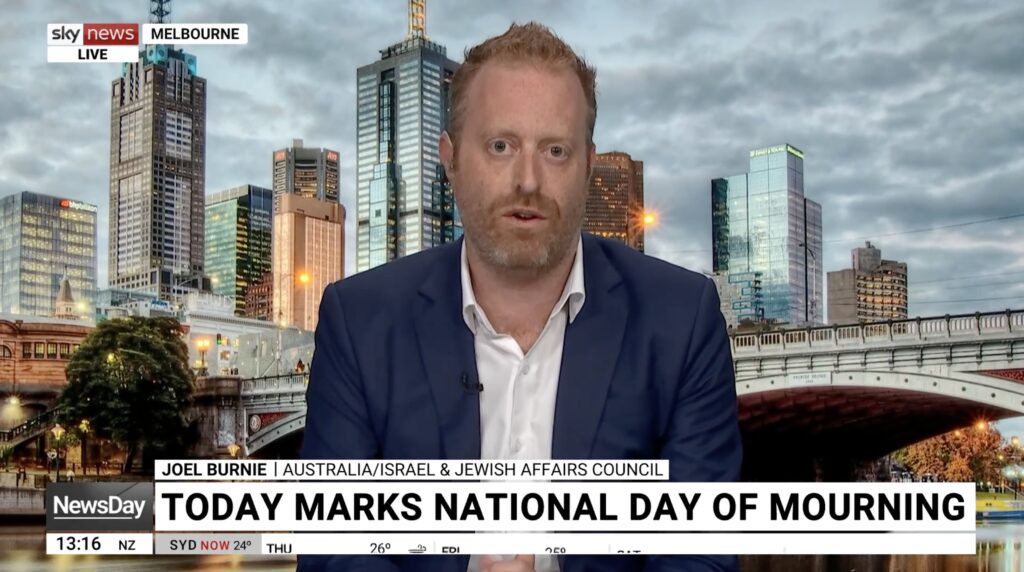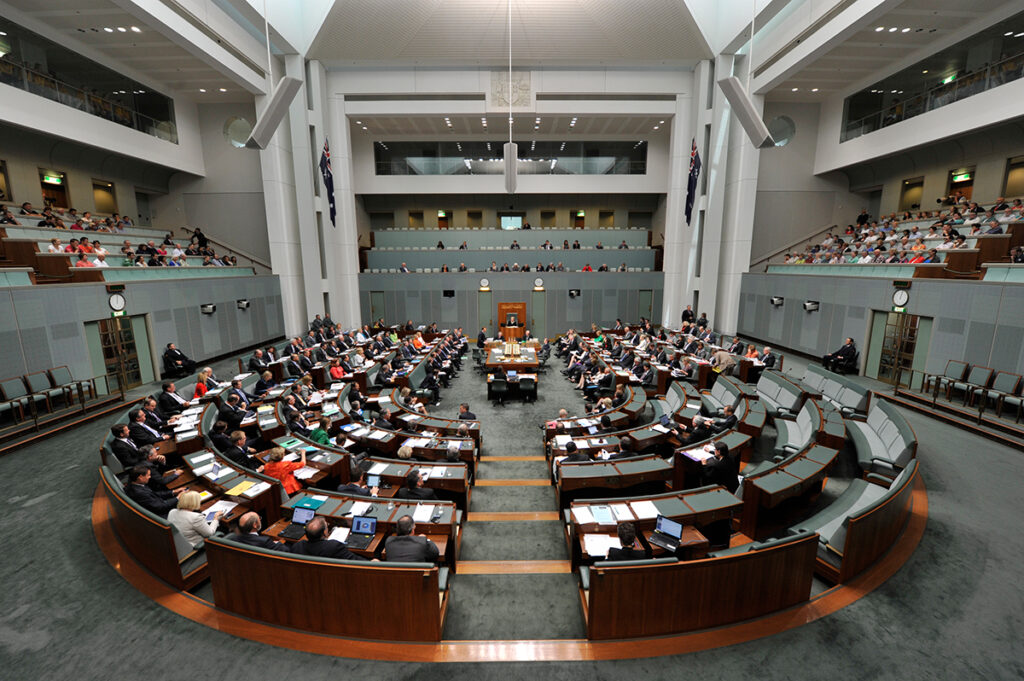IN THE MEDIA
Australia is abandoning Israel
December 18, 2024 | Colin Rubenstein

The West Australian – 18 December 2024
Last week, the Australian Government voted in favour of yet another UN General Assembly resolution that clearly undermines its own declared policy.
That resolution called for an “immediate, unconditional and permanent ceasefire” in Gaza, without mentioning Hamas or making any demands of it.
If actually implemented, it would be guaranteed to leave Hamas permanently in control over Gaza — even though both Prime Minister Albanese and Foreign Minister Wong have repeatedly called for Hamas to play no future role in ruling Gaza.
While the resolution ostensibly calls for Hamas to release the Israeli hostages it has been holding for the last 14 months, this was not linked to the call for an immediate ceasefire.
In other words, it demands Israel permanently cease-fire in Gaza even if Hamas refuses to release the hostages — as it certainly will. It effectively gives Hamas everything it wants — the ability to continue to control Gaza, to continue to exploit the hostages as bargaining chips, and to begin preparing more October 7-style attacks, as its leaders have promised is their goal.
Bizarrely, Australia’s UN Ambassador says Hamas must lay down its arms and there must be no role for terrorists in the future governance of Gaza, then voted for a resolution guaranteeing the opposite outcome.
This vote was part of a clear pattern by the Australian Government of deliberately transforming our bipartisan history of warm relations with Israel combined with thoughtful support for a negotiated two-state resolution with the Palestinians.
Our new policy appears to be something approaching open antagonism to the Jewish state, combined with a near obsession with demanding Palestinian statehood at all costs.
Other recent examples forming part of this ongoing shift include: the Government’s support for a biased UN resolution demanding Israel unilaterally withdraw from all of the West Bank and east Jerusalem without negotiations or requiring any reciprocal actions from the Palestinians; Wong’s December 9 speech appearing to equate Israel with serial human rights violators Russia and China, and the decision to deny a visitor’s visa to former Israeli justice minister Ayelet Shaked, on dubious grounds, after granting her one less than two years ago.
Domestically, this major foreign policy shift has been accompanied by what most Australian Jews regard as a wholly inadequate response to the approximately four-fold increase in anti-Semitism in the country since the Hamas mass terror attack on October 7 last year.
Thus the Jewish community was horrified but largely not surprised by the Adass Israel Synagogue arson terrorist attack on December 6.
The signs had been building for months: doxxing of Jewish creatives, hate-filled slogans at anti-Israel protests, Jewish students advised to study from home for their own safety, and defaced war memorials.
Meanwhile, police repeatedly told Jewish Australians to stay away from public areas “for their own safety” rather than confront protesters likely to incite or commit acts of violence if Jews were in their vicinity.
Albanese’s strong condemnation of the Adass arson attack was welcome, as was his establishment of AFP Special Operation Avalite. But for many Jews, such measures seem belated and hollow in the wake of the Government’s inaction and platitudes on anti-Semitism since October 7.
Moreover, Jewish Australians believe the radical shift in Australia’s foreign policy is linked to the inadequate support we have received from the Government in the face of the unprecedented wave of anti-Semitism. Indeed, the former may have inadvertently contributed to the anti-Semitism surge.
To be clear, no mainstream Australian Jewish leader is saying the unprincipled debasement of our country’s diplomatic relationship with Israel under the Albanese Government is itself anti-Semitic.
However, anti-Semitism has indisputably thrived under the cover of policies that effectively pander to those violently opposed to any Jewish right of self-determination.
Radical activists who have pushed the envelope into anti-Semitism feel the Government is changing its policies in response to their actions, and seek to push even further.
Jewish Australians feel abandoned and exposed. We feel our political leaders have failed to effectively defend the values underpinning our multicultural society. And this seems like a direct challenge to Australian multiculturalism and the cohesion of our democratic society.
We want the Government to urgently re-calibrate its approach to both domestic and foreign policy before it is too late. It must crack down on anti-Semitic hate speech, incitement and violence and provide law enforcement agencies the resources and directives to act decisively against those who target Jewish Australians.
And it should also return to the bipartisan foreign policy consensus that upheld Israel’s right to essential security. Supporting Israel’s self-defence against an existential threat is not just morally correct; it aligns with Australia’s strategic interests and our shared values.
Furthermore, given the Palestinian rejectionism that has seen their leadership turning down repeated, genuine two-state peace offers, it is the only way to bring a reversal of their position to make the achievement of such a negotiated outcome eventually possible.





